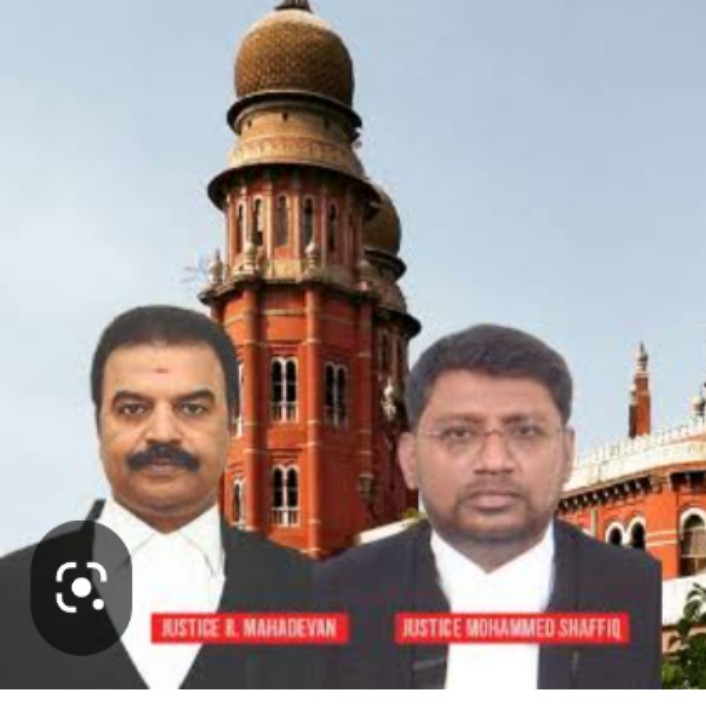GLIMPSE OF A LATEST VERDICT* *The Hon’ble Justice, R.Mahadevan and Mohammed Shaffiq* of the Hon’ble High Court of Madras have allowed the Appeals in the case of *Commissioner of Income Tax vs MAC Public Charitable Trust* and set aside the orders of the Income Tax Appellate Authority as well as The Income-Tax Appellate Tribunal and held that the amounts collected by the assessee even though it is stated as donation by relatives of students seeking admission are Capitation Fee in Quid-pro-quo for allotment of seat in deviation of The Tamil Nadu Educational Institutions (Prohibition for collection of Capitation Fee) Act,
*GLIMPSE OF A LATEST VERDICT*
*The Hon’ble Justice, R.Mahadevan and Mohammed Shaffiq* of the Hon’ble High Court of Madras have allowed the Appeals in the case of *Commissioner of Income Tax vs MAC Public Charitable Trust* and set aside the orders of the Income Tax Appellate Authority as well as The Income-Tax Appellate Tribunal and held that the amounts collected by the assessee even though it is stated as donation by relatives of students seeking admission are Capitation Fee in Quid-pro-quo for allotment of seat in deviation of The Tamil Nadu Educational Institutions (Prohibition for collection of Capitation Fee) Act, 1992 and the same are neither voluntary contribution nor to be treated as applied for charitable purposes and therefore the amounts collected are not exempted under Section 10(23C) and 11 of the Income Tax Act, 1961 and the same are assessable to Income Tax.
The Bench was also pleased to observe as follows:
1) Our country, though has developed considerably, after independence and made several strides marching forward in different fields including in education, we are yet to reach the stage we aspired to, as a nation with specific reference to education. The States are unable to comply with the directions enshrined in the constitution to thrive for education for all, which would encompass within it the access to all sections of the society by providing equal opportunity. Parents are reluctant to make their ward attend public schools unlike in other countries. As per the report of the All India Survey on Higher Education for the year 2019-20, by the Ministry of Education, Higher Secondary Department, 78.6 percent of colleges are privately managed.
2) In the Union Budget for the year 2022-23, a sum of Rs.1,04,277 crores has been allocated for school education, literacy and higher education. Despite the fact that there are State laws making it penal to collect capitation fee and the repeated dictum of various courts including the apex court, the menace of capitation fee could not be curtailed, forget eradication. Education is a means to achieve equality. It not only instills confidence in the minds of the student, but also Is a tool to eradicate exploitation. It offers employment opportunity, besides helping in churning one-self into a better person.
3) The development of a country is to be weighed in terms of the educated. Privatization of education aids in collection of capitation. We hope that the Central and State Government will thrive to ensure that all those who deserve, but are unable to get admission in educational institutions for want of funds, are accommodated to pursue education and take appropriate steps to eradicate the collection of capitation fee by creating policies and awareness and for that purpose, on the lines of the web-portal under the aegis of the Supreme Court, a web-portal of a similar nature must be set-up, wherein any information about the private colleges charging capitation fees can be furnished by the students or their parents or anyone having first-hand information in this regard. The web-portal has to be maintained and regulated by the National Informative Centre (NIC) and the Information Technology and Digital Services Department, Government of Tamil Nadu; and the State Government is directed to publish the details about the web-portal in the English as well as the vernacular newspapers at the time of admission. In addition, a pamphlet should be compulsorily given to the students and their parents at the time of counseling informing them about the availability of the web-portal stated above. Apart from that, in view of the fact that the present appeals filed by the Revenue are allowed, it is natural that (i) the assessing authority shall proceed further on the basis of the orders of assessment of tax, which are the subject matter of these appeals.
4) The assessing authority shall also proceed further for cancellation of registration certificate issued to the assesses/trusts under Section 12AA of the Act thereby not to treat the respondents as charitable institutions any longer.
5) The Assessing Officer shall also proceed to reopen the previous assessments, if permissible by law, based on tangible materials relating to collection of capitation fee, since it is illegal and is punishable.

